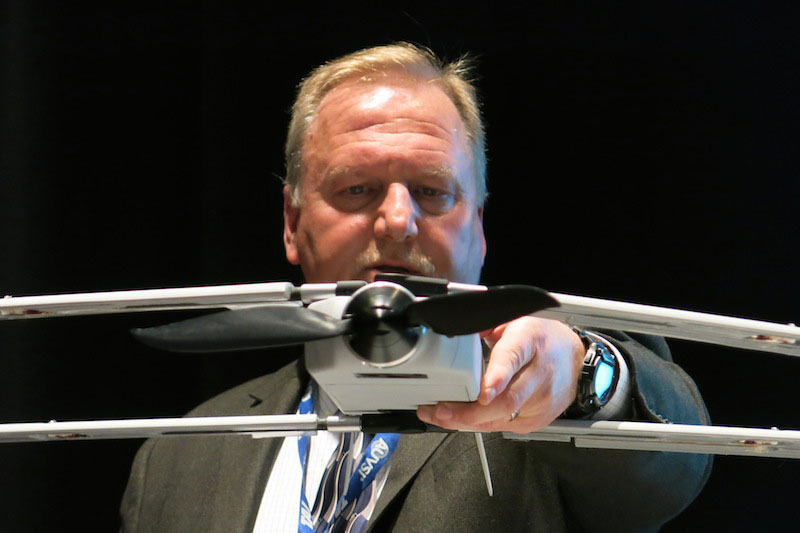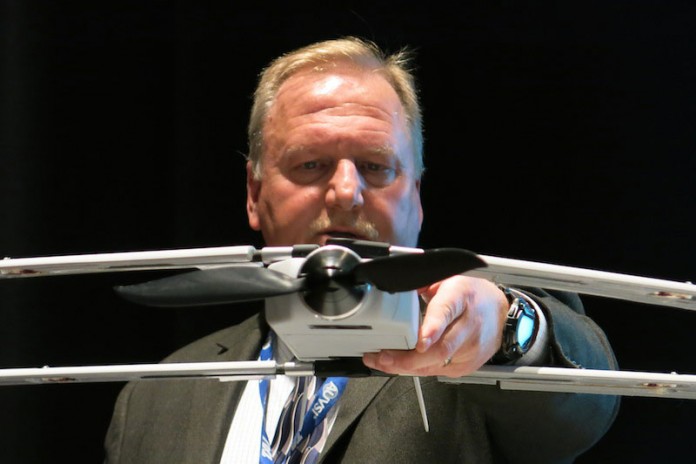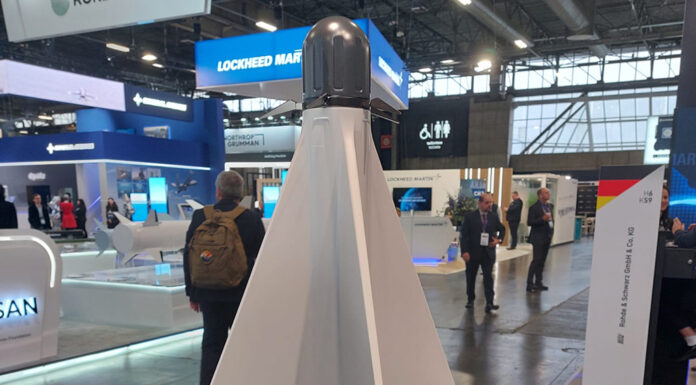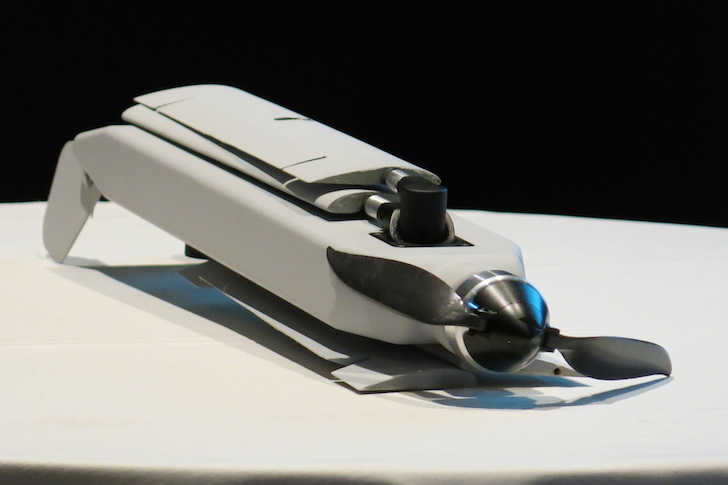
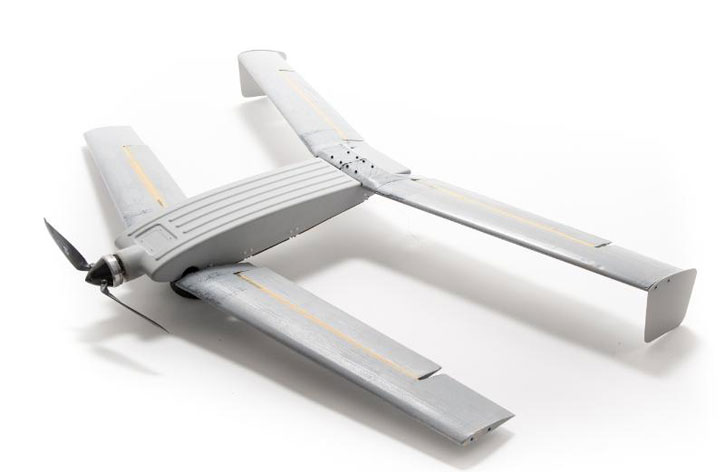
Lockheed Martin unveiled today a family of small unmanned aerial vehicle, part of the line of Small UAS line. The mini-drone dubbed ‘Vector Hawk’ was unveiled at the AUVSI 2014 convention in Orlando, Florida. “Vector Hawk addresses a broad set of unique missions and operating needs within a single system” Steve Fortson, business development manager for Lockheed Martin explained.
The system was designed as an affordable and modular platform, that can be configured as a quadrotor, tilt-rotor or standard propeller driven platform. “The Vector Hawk can be field-reconfigured to multiple missions including fixed-wing, vertical takeoff and landing (VTOL), and tilt-rotor enabling VTOL with transition to fixed wing flight. Our fixed wing variants may be hand or tube launched, while VTOL and tilt-rotor variants may be launched from land or land on water” Fortson added. “With a gross takeoff weight of only four pounds and a vertical profile of only four inches, Vector Hawk can carry 0.75 pound (340 gr. of payload boasts best-in-class payload capacity, speed and endurance.” Fortson said.
“As a waterproof system Vector Hawk can operate in harsh weather conditions and at sea” Fortson said, the drone can sustain winds up to 45 knots, fly in rain and heavy snow or land on water. According to Fortson, the different configurations share common payloads and key performance, but some specific performance characteristics vary according to missions. For example, the fixed wing variant has a cruising speed of 30 knots and dash speed of 70 knots, its mission can be extended up to 150 minutes using primary cells, or 90 minutes using rechargeable liPO batteries. The tilt rotor variant will be more flexible, capable of 50 kt dashes, it will be able to slow down to hover speed, or fly inverted, to inspect underneath bridges, on missions lasting up-to 80 minutes. The quad-rotor variant can dash at 70 knots speed but will be able to operate for only 45 minutes.
Vector Hawk features fully autonomous flight, landing and fail-safes. It is inaudible at operational slant ranges. The data link features a high bandwidth software defined radio, mesh networking (including 3G, 4G, and LTE cellular), over-the-air reconfiguration, and is capable of employing a variety of waveforms.
